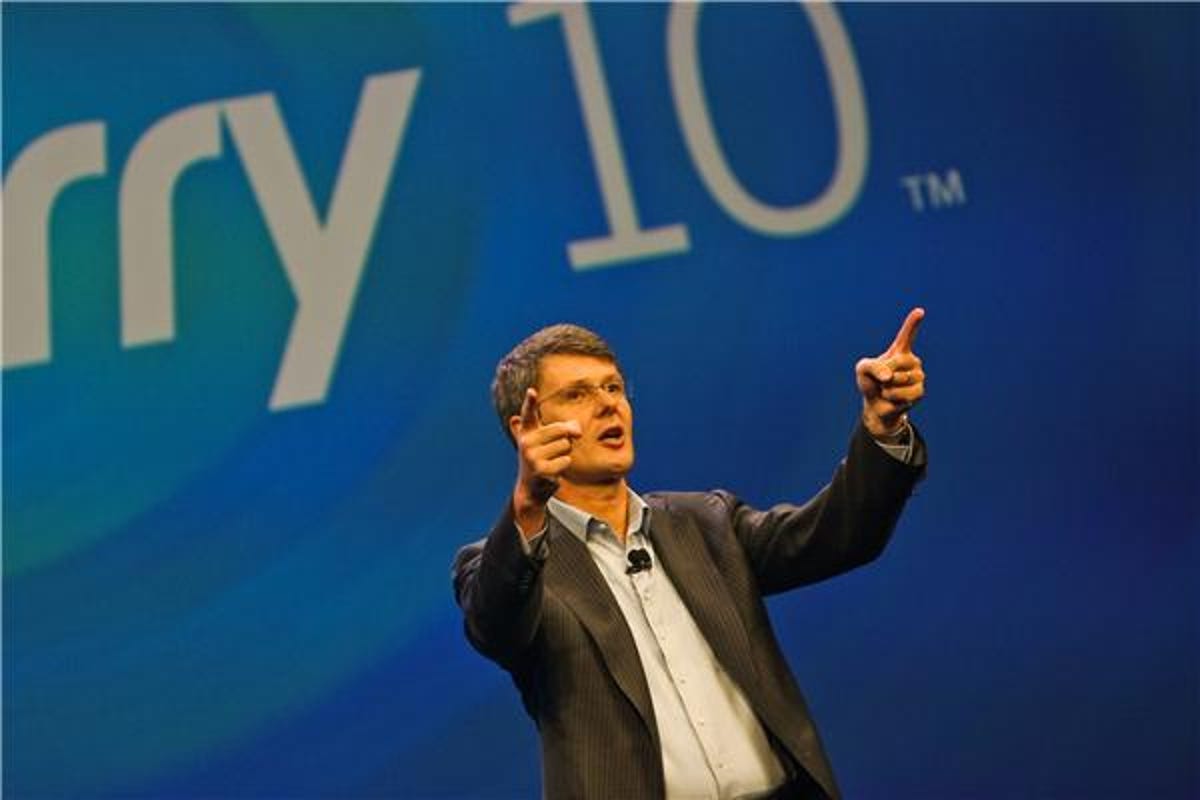Don’t hang up the banners and throw the ticker-tape parade for BlackBerry yet.
BlackBerry’s fiscal fourth-quarter report brought a bevy of good news. The company surprisingly returned to profitability; it shipped 1 million Z10 smartphones, the majority of which were snapped up by consumers; and it appears as if it it’s taking share from competing platforms.
It’s a strong start for BlackBerry. But by no means can the company declare “Mission Accomplished” on its comeback. Indeed, there are a lot of unanswered questions that won’t get answered until another several months of results come in.
“The next quarter will provide a much better basis for judging BlackBerry long term, as we’ll have a full quarter of availability, the launch of the Q10, the U.S. launch and an increase in marketing from BlackBerry and its carrier partners, which should provide a better basis for judging performance going forward,” said Jan Dawson, an analyst at Ovum.
This, by the way, is not a shot at the company and not an attempt to drag down what were generally good results. BlackBerry CEO Thorsten Heins told CNET as much, noting that the true gauge of success or failure wouldn’t come until it got two solid quarters of data.


Sarah Tew/CNET
BlackBerry’s results, however, did show signs of concerns. That BlackBerry lost 3 million subscribers, or nearly 4 percent of its base, over the last quarter is a concern. The company has hinged its comeback on tapping into the “loyal” nature of that base, and two straight quarters of customer defections marks the potential start of a troubling trend.
The transition to the new BlackBerry 10 operating system has meant that the company can no longer collect the lucrative service fees that it did with the older platform. The company has so far been able to offset the decline with the more profitable and expensive Z10. But it will need businesses to adopt its BlackBerry Enterprise Server 10 (BES 10) product quickly, as well as develop new services to offset what will be an accelerating decline.
The bigger unknown is how BlackBerry will be received in the U.S. Despite throwing a splashy party in Times Square last week to drum up attention for the U.S. Z10 launch, the phone debuted quietly at AT&T, with analysts noting that sales representatives appeared ill prepared to sell the phone.
Perhaps the broader campaign by the carriers will be rolled out in the coming weeks. It’s clear that BlackBerry doesn’t intend to solely rely on the carriers; the company said it expects to increase its marketing budget by 50 percent. As a result of the heavy advertising, it expects to break even in the fiscal first quarter.
Related stories
- Best Password Manager to Use for 2022
- Your Phone Screen Is Gross. Here’s How to Clean It Without Causing Damage
- Spending All Night With the First iPhone
- Kanye West’s Donda 2 Skips Spotify, 5G BlackBerry is Dead
- BlackBerry’s 5G Phone Is Officially Dead
The BlackBerry faithful may not rally so quickly to the Z10, instead waiting on the more conventional keyboard-packing BlackBerry Q10, which the numbers bear out. Only 45 percent of the consumers that bought the Z10 were already using a BlackBerry, with a majority coming from outside the platform. The mix of former BlackBerry users should rise with the introduction of the Q10.
While Heins said today that the Q10 should hit the market in April, he warned to CNET that it would likely come two to three months after the Z10 launch, suggesting a later launch date for the U.S.
The gap in timing may prove painful for BlackBerry. In the coming months, the Samsung Galaxy S4 will hit the market, which will likely Hoover up sales in the industry. And the HTC One is around to pick up the rest of the scraps.
Another iPhone, rumored to hit as early as June, could spell an end to any early momentum BlackBerry may have enjoyed.
Still, what BlackBerry has proven is it has a pulse again. By getting back to profitability — a quarter earlier than expected — the company’s ability to continue operating is no longer a lingering concern.
Wall Street gave a reserved thumbs-up to the results today, sending its stock up 1.5 percent to $14.79 after a few weeks of cautious selling.
BlackBerry has indeed seen a nice run capped off by today’s results, but the road to recovery remains a tough one. Even Heins seems to acknowledge that its hardest tasks are still ahead.
“Getting back to a profitable quarter is just the starting line, not the finish line,” he said during a conference call today.



